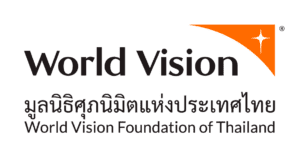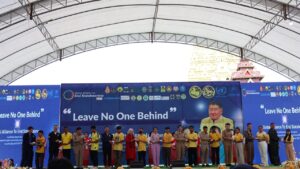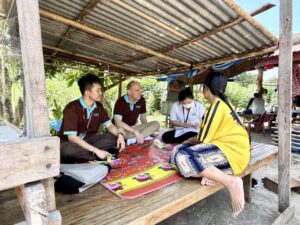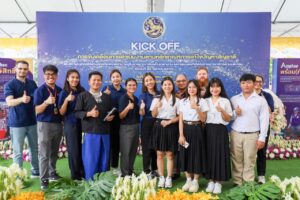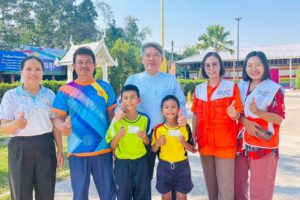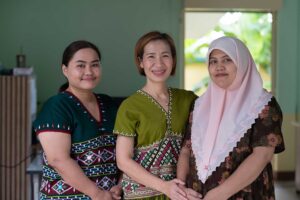World Vision Thailand partners with Raks Thai Foundation, a primary recipient of The Global Fund, as the representatives of the civil sector, to implement the Stop TB and AIDS Through RRTTPR (Reach-Recruit-Test-Treat-Prevention-Retain) 2024-2026 project. World Vision Thailand supports community-driven integration to foster accessible and friendly healthcare services for key populations, strengthen and sustain community-based systems, and eliminate human rights and gender barriers to healthcare access by establishing mechanisms to support essential knowledge sets, implementation techniques, and policy driving for key populations such as migrant men who have sex with men (MSM), transgender individuals and sex workers and their partners to gain equitable access to TB and HIV healthcare services. The network of sub-recipients includes MAP Foundation for the Health and Knowledge of Ethnic Labour, Stella Maris (STM), ALIGHT and Shoklo Malaria Research Unit (SMRU), Faculty of Tropical Medicine, Mahidol University, Dreamlopments Foundation, Foundation for Action on Inclusion Rights (FAIR) and Service Worker in Group Foundation (SWING) which are key drivers of this initiative.
In May 2024, World Vision Thailand conducted a meeting to report the progress of the project implementation and excellent performance as of Quarter 1 for sub-recipients and networks to reflect on the programming and share lessons learned.
Initiating interactions and engaging in conversations is a fundamental strategy for breaking down barriers.Hurk Mung, who was once a normal migrant worker, is now the coordinator from MAP Foundation for the Health and Knowledge of Ethnic Labour, Chiang Mai who supports his fellow migrants. He shares about the project implementation: “Most of our staff are also migrant workers. Therefore, it is easy for us to reach the target group. Yet, we face some challenges because migrant workers in Thailand fear disclosing their HIV or TB status due to concerns about employer and community awareness, leading to potential job loss. To address this, we have created a safe space for infected individuals to gather and share their experiences. On the other hand, we aim to change the mindset of the community by promoting joint activities, reducing stigmatisation and raising community awareness of the ability to co-exist with the infected.”
In Quarter 2, community mapping has been started to assess community needs through a participatory process, aiming to better reach migrant populations in both workplaces and within the community. This is in line with what is shared by Nattaya Petcharat, the coordinator from Stella Maris, Songkhla: “We are currently mapping our target service recipient groups, identifying their demographics and locations, while collaborating with migrant health volunteers, labour leaders from both the general populations and the group that reveal their infection status with us, and local partner organisations. It is also crucial to assess the knowledge and understanding of our leaders regarding our work. To enhance their capabilities, we engage in regular discussions, analyses, and risk assessments.”
Hurk Mung elaborated on the creation of educational materials on HIV and TB in the primary languages of migrant populations. “We operate a community radio station that provides entertainment, education on migrant worker rights, and regular news updates. This platform serves as an additional channel for raising awareness and disseminating information about HIV and TB among migrants.”
AIDS and TB remain Thailand’s key health threats. The Ministry of Public Health has implemented a strategy to end TB, aiming to reduce the incidence rate to 10 per 100,000 population by 2035. It takes the collaboration of the government, private sector, civil society, general public and cross-country organisations to realise the goal and address the issues that have long been swept under the rug by reaching migrants who are at risk of HIV and TB, encouraging them to receive testing, facilitating their entry into treatment and retaining them in the healthcare system.
